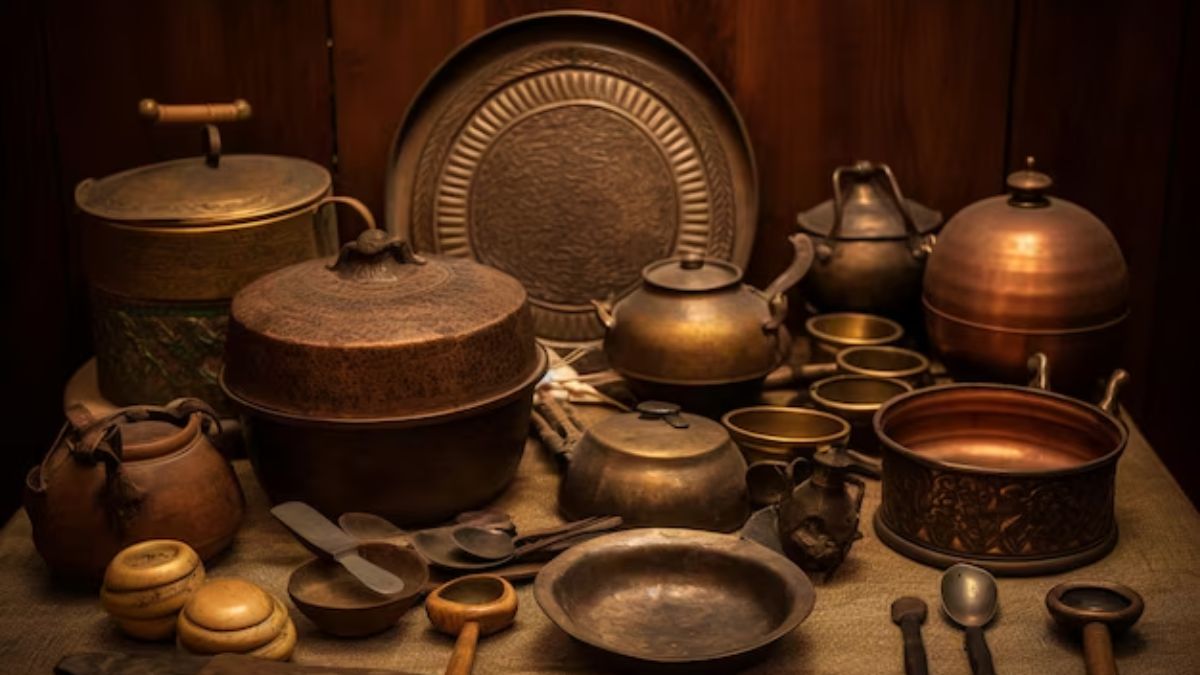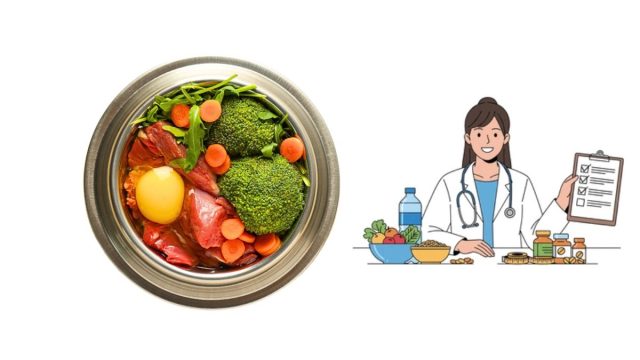In the pursuit of a healthier lifestyle, much emphasis is placed on diet, exercise and mental well-being. However, an often-overlooked factor that can significantly impact health is the type of utensils used for cooking and eating. Understanding the unique properties of various metals and their interaction with food can help enhance overall well-being.
Gold: The Metal of Strength and Vitality
A warm metal associated with vitality and strength, gold has been traditionally used for cooking and eating. Consuming food in gold utensils is believed to fortify both the internal and external body, enhancing overall robustness. Ayurveda suggests that gold may have a positive impact on eyesight, cognitive function and immunity, making it a prized material for elite households in ancient civilizations.
Silver: The Cooling Healer
Known for its cooling properties, silver has been a staple in traditional kitchens for centuries. Eating from silver utensils is believed to provide internal coolness, calming the body and balancing the three doshas, pitta, kapha and vata. Additionally, silver enhances brain function, improves eyesight and possesses antimicrobial properties, making it a preferred choice for food storage and consumption.
Bronze (Kansa): The Intelligence Booster
Regarded as an intelligence-enhancing metal, bronze or kansa is said to purify the blood, improve digestion and increase appetite. Cooking in bronze vessels preserves up to 97% of the nutrients in food, making it an excellent choice for maintaining optimal health. However, it is important to note that sour foods should not be served in bronze utensils, as they may react with the metal and produce harmful compounds.
Copper: The Detoxifier
Copper has long been associated with detoxification and improved immunity. Drinking water stored in copper vessels helps cleanse the body by eliminating toxins, purifying the blood and supporting liver function. Additionally, copper is known to enhance memory and cognitive performance. However, consuming dairy products such as milk in copper vessels is discouraged, as the reaction between milk and copper can be harmful.
Brass: The Nutrient Retainer
Cooking and eating in brass utensils offer several health benefits, including the prevention of worm infestations and kapha-related diseases. Brass vessels also help balance vata dosha and retain up to 93% of nutrients in food. However, proper maintenance and cleaning are essential to prevent oxidation, which could lead to the release of harmful compounds.
Iron: The Strength Enhancer
Iron utensils are widely used to boost hemoglobin levels and enhance physical strength. Cooking food in iron vessels helps combat anemia, reduce swelling and prevent jaundice. However, direct consumption from iron vessels is not advised, as prolonged contact may lead to reduced cognitive function. Interestingly, drinking milk from an iron vessel is believed to provide significant health benefits.
Stainless Steel: The Neutral Alternative
Unlike other metals, stainless steel does not react with heat or acidic substances, making it a neutral choice for cooking and dining. While it does not offer substantial health benefits like other traditional metals, it also does not pose any major risks. Its durability and non-reactive nature make it a common choice in modern kitchens.
Aluminum: The Silent Health Hazard
Despite its widespread use, aluminum cookware and utensils pose significant health risks. Derived from bauxite, aluminum is known to leach into food, leading to the depletion of essential minerals such as iron and calcium. Prolonged exposure has been linked to weakened bones, neurological disorders, liver damage, kidney failure, asthma, diabetes and other chronic ailments. Additionally, cooking in aluminum pressure cookers destroys up to 87% of the nutrients in food, making it one of the least advisable choices for kitchenware.
Clay (Earthenware): The Ancient Super Utensil
Clay pots have been used for centuries as a natural way to retain the nutritional value of food. Unlike metal cookware, earthenware allows for slow and even cooking, preserving the food’s essential nutrients. Ayurveda and modern science both acknowledge the benefits of cooking in clay pots, as they naturally enhance the taste and health benefits of food. Additionally, clay utensils are ideal for dairy products, as they do not react with milk and other acidic substances.
The Best Utensils for Drinking Water
According to the ancient Ayurvedic text Bhavaprakash Granth, the vessel in which water is stored can significantly influence its quality and health benefits.
- Copper, crystal (sphatik) and glass vessels are considered ideal for storing and drinking water, as they help maintain purity and natural cooling properties.
- If these are unavailable, earthen pots are highly recommended due to their ability to naturally cool water and preserve its freshness.
- Drinking water from broken vessels or cupped hands is discouraged, as it is believed to introduce impurities and disrupt the body’s energy balance.
The materials used for cooking and eating play a crucial role in maintaining health and well-being. Traditional wisdom, backed by modern research, suggests that metals such as gold, silver, bronze and copper offer significant health benefits, while materials like aluminum can be harmful. By making informed choices about kitchenware, individuals can maximize the nutritional value of their food and promote overall wellness.




